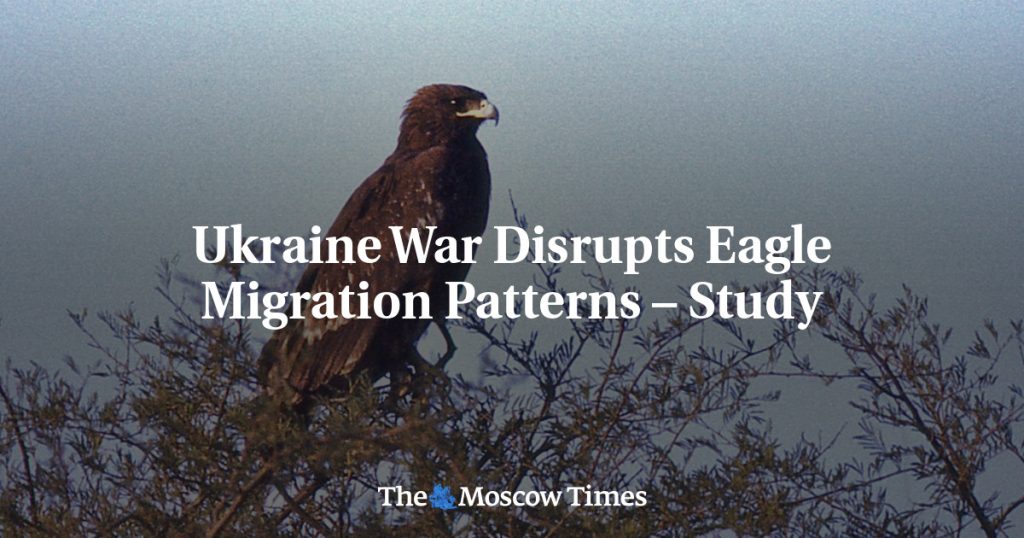A new study has found that Russia’s invasion of Ukraine has had a significant impact on the migratory patterns of greater spotted eagles, a vulnerable species of eagles. The birds are now being forced to travel longer distances to reach their breeding grounds, with an average increase of 85 kilometers in areas impacted by the war. This change has led to increased flying times for the eagles during their migration seasons, which usually occur from September to November in the fall and February to April in the spring.
Researchers from the United Kingdom and Estonia discovered that male greater spotted eagles experienced a greater increase in migration flying time compared to females. Males flew an additional 56 hours on average, while females flew an additional 53 hours. Prior to the war, 90% of the birds made stopovers in Ukraine, but this number decreased to one-third in 2022, the year of the invasion. This change in migration behavior has likely exhausted the birds in war-impacted areas, putting them at a higher risk of dying due to various causes.
The study highlighted the sublethal effects that the increased flying times and reduced stopover locations have had on the greater spotted eagles. These effects indicate that the eagles are facing greater risks to their survival due to the disruptions caused by the war. As the birds are forced to fly longer distances without adequate rest and food, they become more susceptible to threats such as exhaustion, starvation, and predation. The changes in migratory patterns observed in the study are a concerning development for the future of this vulnerable species.
The findings of the study shed light on the far-reaching consequences of armed conflicts on wildlife and ecosystems. The invasion of Ukraine by Russia has not only affected human populations but has also had a direct impact on the migratory behavior of a species of eagle. The disruptions caused by the war have altered the eagles’ traditional routes and habits, leading to potential negative outcomes for the population. This serves as a reminder of the interconnectedness between human actions and the natural world, and the importance of considering the implications of conflicts on wildlife conservation efforts.
Efforts to protect the greater spotted eagles and other migratory species affected by the war in Ukraine are crucial to ensuring their continued survival and conservation. Conservationists and researchers must work together to monitor the population and assess the long-term effects of the disruptions caused by the conflict. Conservation measures such as habitat restoration, monitoring programs, and conservation awareness campaigns may help mitigate the impact of the war on the vulnerable species. By understanding the challenges facing the eagles as a result of the invasion, conservationists can take proactive steps to protect and preserve these majestic birds for future generations.















